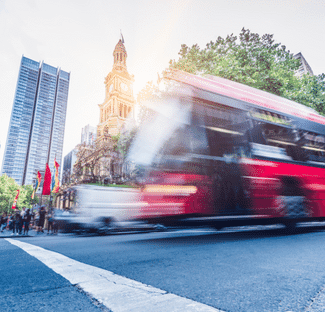
Concerns about passenger safety at night is the leading factor shaping people’s perception of buses in Australia’s largest urban centres according to world first research commissioned by Roads Australia (RA), with support from Aurecon.
The report, Investigating the Social Licence for Buses in Australia, is the result of a detailed survey of approximately 2,400 people across Melbourne, Sydney and South East Queensland. Safety at night was considered in all three regions as having the highest importance, but the lowest performance of the 23 themes investigated.
“Encouraging more people to use public transport over their car is a key part of reducing our transport emissions and managing congestion, but buses have often been disregarded as a form of public transport in our major cities,” said RA CEO Michael Kilgariff.
“RA’s policy goals include optimising the use of our road assets and decarbonising transport, so we wanted to find out what factors may be discouraging people from wanting to use the bus. Passenger safety at night is the biggest concern influencing people’s perception of buses.”
The research, undertaken for RA by Movement & Place Consulting, also highlighted other common areas of concern including cleanliness and hygiene, timetable reliability and punctuality.
Using the results of the survey, the researchers were able to apply a “social licence” assessment for each of the jurisdictions, effectively a measure of the level of public support for buses as a form of public transport.
Melbourne scored the lowest of all of jurisdictions, with under 20 per cent approval with Sydney recording the highest level of support overall. Bus users in Queensland also showed considerable support.
The research project also showed strong support for buses as a means of addressing climate change and improving people’s connections to jobs and services.
“Finding ways to make people feel safer when using the bus at night – similar to the way Victoria Police Protective Service Officers have been deployed at railway stations – will go a long way to making buses a more attractive form of transport,” said Mr Kilgariff.
“This report and the social licence results will play an important role in finding ways to get more people using buses and public transport, as well as building support for investment in improved bus timetables and infrastructure,” said Mr Kilgariff.